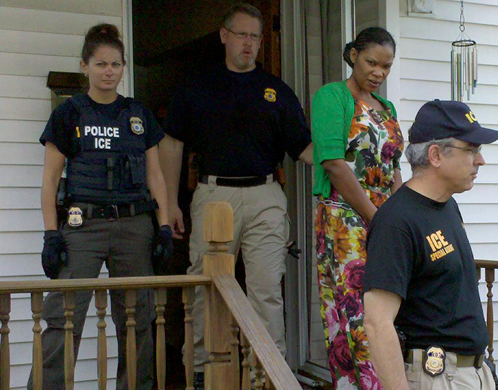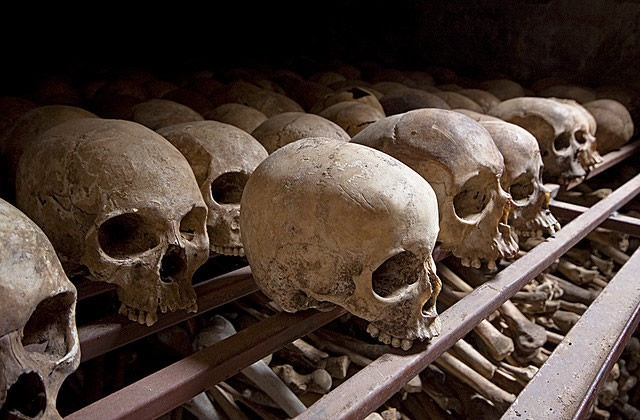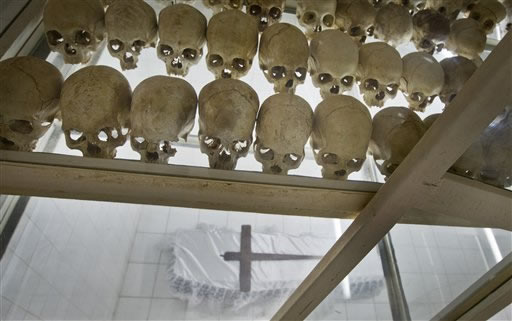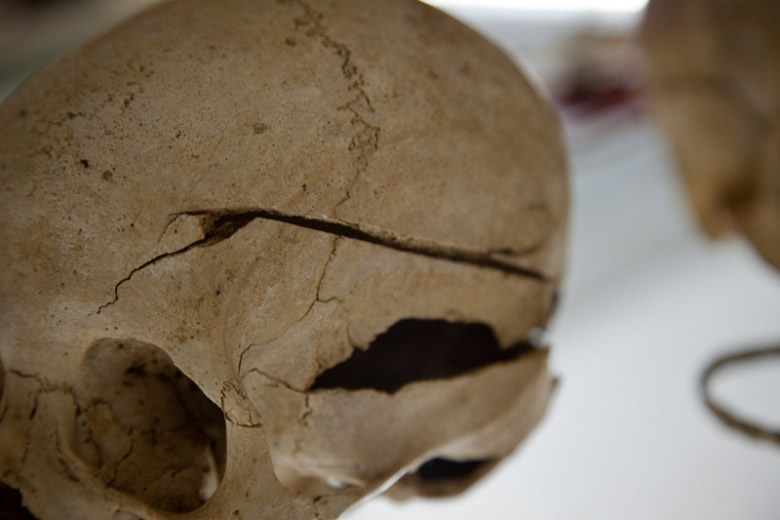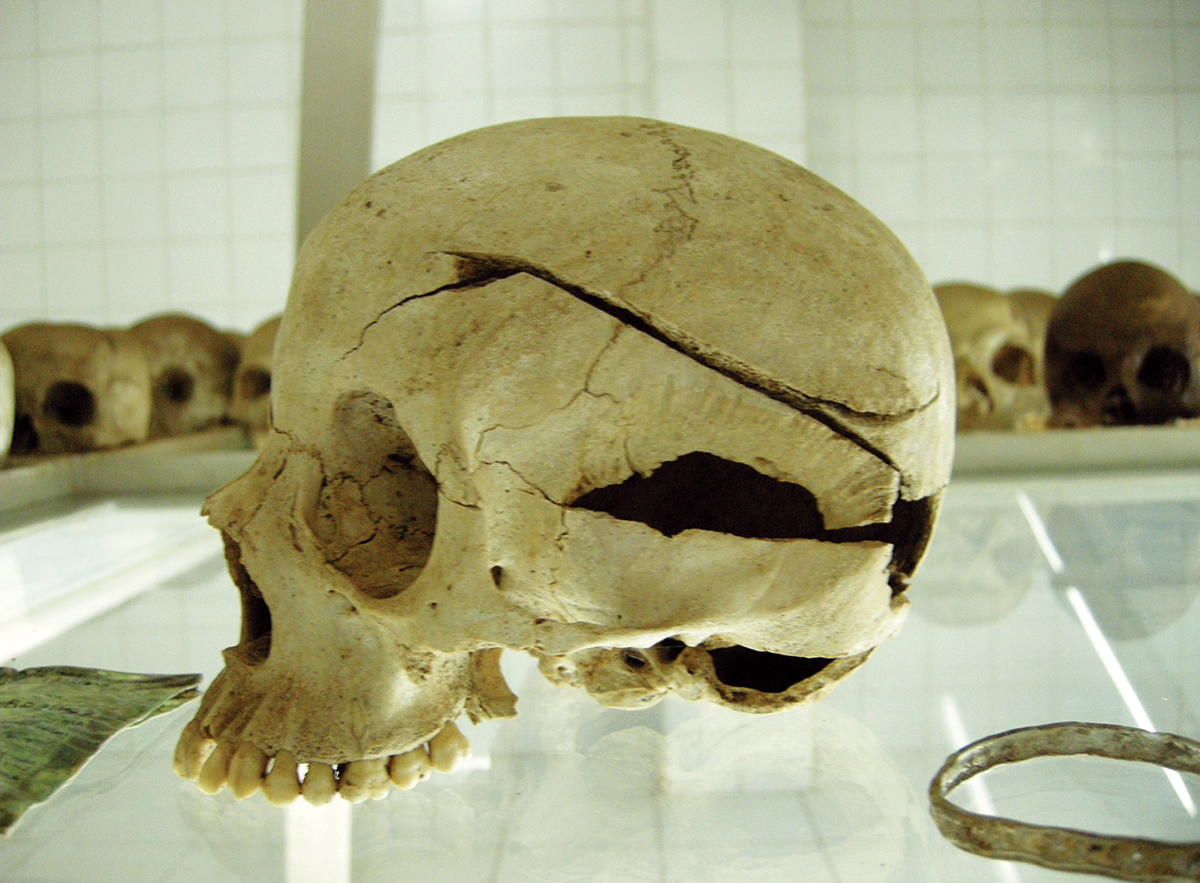ICE Homeland Security Investigations Special Agent recalls the investigation that brought justice to Rwandan genocide participant
Today is the 21st anniversary of the Rwandan genocide. In 1994, from April 7 to mid-July, the extremist ethnic group, the Hutus, murdered an estimated 800,000 Rwandans who were Tutsis and moderate Hutus. A court document from the District of New Hampshire states, "About 7,000 Rwandans died each day, often butchered by machete-wielding Interahamwes at roadblocks set up to catch fleeing Tutsis. And these killers didn't just kill — they raped, tortured and disfigured too."
It's a cruel twist of irony that in the aftermath of such atrocities against humanity, both victims and abusers often travel to the United States seeking refuge; the latter of whom try to conceal that they participated in gross human rights abuses.
U.S. Immigration and Customs Enforcement's (ICE's) Homeland Security Investigations (HSI) works to ensure perpetrators of war crimes, genocide, torture and other gross human rights abuses are not given safe haven in the United States. HSI's Human Rights Violators and War Crimes Unit leads this effort.
In 2004, Beatrice Munyenyezi, who claimed she was a refugee from Rwanda, was living with her three daughters in Manchester, New Hampshire. Living in America, Munyenyezi had carved out a new life. She had gained support from Catholic Charities, an education at the University of New Hampshire, a job as an advocate for refugees and local notoriety when she spoke publicly and convincingly of her story as a refugee. Perhaps the greatest gift Munyenyezi obtained from the United States was becoming a naturalized citizen in 2003.
HSI Special Agent Brian Andersen's investigative curiosity was piqued, however, when certain statements didn't add up in his investigation of Munyenyezi's sister. In 2007, Andersen began investigating Munyenyezi.
The Munyenyezi case was complex and intense. Andersen devoted the next seven years to searching for the truth. Andersen and two of his colleagues, HSI Special Agents Jason Fox and Geoff Howes, made several trips to Rwanda, pored over documents and conducted exhaustive interviews with hundreds of individuals who experienced or witnessed unimaginable cruelty.
Andersen discovered that Munyenyezi had been a member of the Interahamwe, a para-military extremist group. She manned a roadblock near her home, a family hotel in Butare. Munyenyezi decided who could pass and who would be selected for rape and murder. Some victims were assaulted at the roadblock; others were led to killing fields or a nearby forest where they were killed.
When Munyenyezi was finally brought to trial in February 2012, Andersen's heart sunk when it ended in a mistrial. Not to be dissuaded, Andersen doubled-down, continuing to fight to see that Munyenyezi was held accountable.
Andersen said that one woman related how she had been forcibly raped over one hundred times. She explained that she was brought to her parent's house and made to watch as killers brutally raped and murdered her mother.
"On other days I thought about a 10-year-old boy who had been pulled from a car as it tried to pass the roadblock in front of Munyenyezi's home," said Andersen. "Munyenyezi beat the boy to death. Why? Because he was a Tutsi, and because militia members at the roadblock had been making fun of her because Munyenyezi had yet to actually get blood on her hands. These are two of the stories that I thought about over and over again. The thought of not having Munyenyezi held to account for those crimes spurred me to see the work through to the end."
The end finally did come for Munyenyezi after a new trial was held in February 2013. A jury found her guilty of lying on her application to become a U.S. citizen. Judge Steven McAuliffe sentenced her to the maximum penalty of 10 years in federal prison. He also revoked her U.S. citizenship.
During the years Anderson investigated the case, his young son was growing up and meeting milestones without his Dad. "It was difficult for both my son and me when I couldn't be there for Little League and soccer games, holidays, school concerts and so many hallmarks that can never be redone," said Andersen. "My son means everything to me. But looking at the big picture, a principle was at stake that had future implications not only for my son, but for the country at large. We must stand up when and if we are called to ensure that the United States does not become home to those who commit violent and evil acts. Justice speaks volumes about who we are as a nation, as well as what our future will be."
Munyenyezi appealed her conviction and oral arguments were heard in February. In March, a swift and unanimous decision affirmed her conviction.
Andersen is still processing this entire investigative experience. What he does know for certain is that "when committed people come together and join a common cause and that cause is just, tremendous things can happen."
Linda Hunt, assistant special agent in charge of HSI Boston said, "During the years Andersen investigated the case, his continuous dedication to justice in this ghastly investigative arena was unmatched and beyond what I have seen in my nearly 30 years of law enforcement."
A Boston Magazine article titled, "The Monster Next Door," chronicles Andersen's investigation of Munyenyezi.
"The United States cannot be a safe haven for human rights violators," and Andersen. Although sometimes perpetrators are able to slip through our borders, we have a moral obligation to find, investigate and prosecute people like Beatice Munyenyezi. The Boston Magazine got it right – she is a monster, in every sense of the word."


